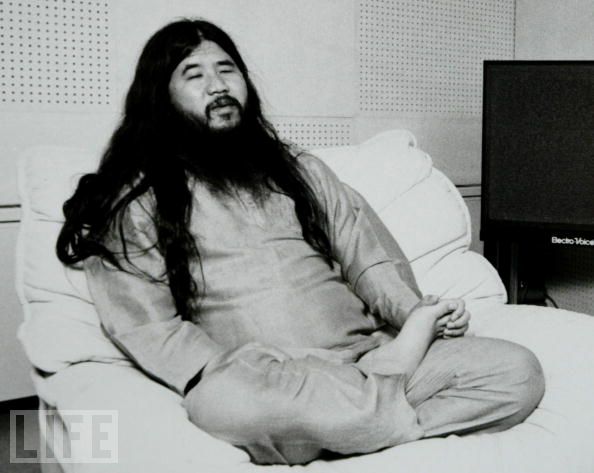March 20, 2014
As I woke up freezing cold this morning, thinking when the hell will spring come to Meguro, I realized that it was nineteen years ago that the Subway Sarin Incident took place on the Hibya Line in Tokyo. At the time I was (and still am) went back and forth to Tokyo, but when I lived in Ebisu, I would take the Hibya Line to Roppongi to my favorite record store at the time, The Wave which was located in their own building on Roppongi Dori. There were two shocking incidents for me. One is the Sarin attack on the subway, and the other is the disappearance of The Wave building. This was a six-story building, where each floor was allocated for a specific type of music. In the basement they showed films from Europe, and the top floor had one of the best bookstores I have ever been to. At the time, the Seibu department store brought a certain amount of culture as well as shops in its empire like touch on the retail world. For instance, they would have a theater on the seventh floor in their department store where they showed nothing but ‘underground’ or avant-garde theater or exhibitions. That all has changed due to the economic bubble bursting during the late 90s. And on top of that was the Sarin attack on innocent Tokyo citizens.

The Hibya Line runs from Naka-Meguro in Meguro and Kita-Senju in Adachi. It is actually a perfect line because it reaches hot spots such as Roppongi, Ebisu, and Kayabachō. So logically, this would be a perfect spot for a terrorist to take action on. I remember being totally shocked that something like this can take place in Tokyo. For most people in my world, 9/11 is the date where the world changed for them, but for me it was clearly what the Japanese officially call the Subway Sarin incident. It is widely known that the attack was made by an outsider group called Aum Shinrikyo (now known as “Aleph”). The movement was created by Shoko Asahara, and it started off as a yoga and meditation class. Eventually over a short period of time it had grown up to become a terrorist organization. Like a lot of spiritual groups, the leader conveys himself as “Christ.” And then as they say in a fairy tale, all things start to rot from the inside to the outside.

Tragically thirteen were murdered by the attack, and at the very least (as it was last reported) up to 1,300 people were wounded from the incident. Again, I have difficulty getting my head around why anyone would want to do this for whatever their reason is. Mr. Asahara, is like any other egotist, who sees the world in a certain light and needs to convey that point-of-view at all costs. Then there are others like the Norwegian playwright Henrik Ibsen, who has an insightful point-of-view of how society and culture works. In his play “,An Enemy of the People” (original Norwegian title: En folkefiende) is about a doctor in a small town that realizes a lot of the illness is coming from the local business which is the public baths. Many of its citizens and even more important, many tourists are coming to this town for these ‘public baths.' The Doctor finds out that actual waste material is contaminating the local waters which in turn, affects the local baths community. As the doctor brings the news up, the industry and the public refuse to listen to him. Due to the fact that the main economy comes from these baths.

Shockingly enough, this is exactly the same situation we are in now with the climate warming as well as the various issues of the nuclear industry. Health and well-being for its citizens vs. the economy. The majority of the population usually sides with the economy when it comes to the issues of public health against the money-making machines that are out there. It comes to mind the eminent psychologist and behaviorist B. F. Skinner, who saw ‘free will’ as an illusion. He believed in the reinforcement system where if the consequences were bad, there were chances that the behavior would not be repeated. If they were good, then the consequences will be allowed. I think the economic system is sort of based on this theory. Economic wealth or health is more important than emotional or physical health to many. So therefore, most citizens would side with those who promise either the illusion of wealth or the actual delivery of the physical goods. Skinner invented a laboratory apparatus known as the “Skinner box” where animals, like a rat is tested with respect to positive and negative reinforcement. Ironically enough, a lot of slot machines and online games are built on the Skinner box theory.

I often think that shows from the 1950s and 1960s such as The Adventues of Ozzie and Harriet, which had a long run as a series on the ABC network from 1952 to 1966. It was a real family, yet contained as a fictional TV show as sorts. I often thought of that the show as an entertainment version of the Skinner box. Also I think a lot of reality TV shows are built on the same premise as well. It is interesting that when we have that scratch, and we scratch it, the evil just pours out of our system.






















.jpg)






